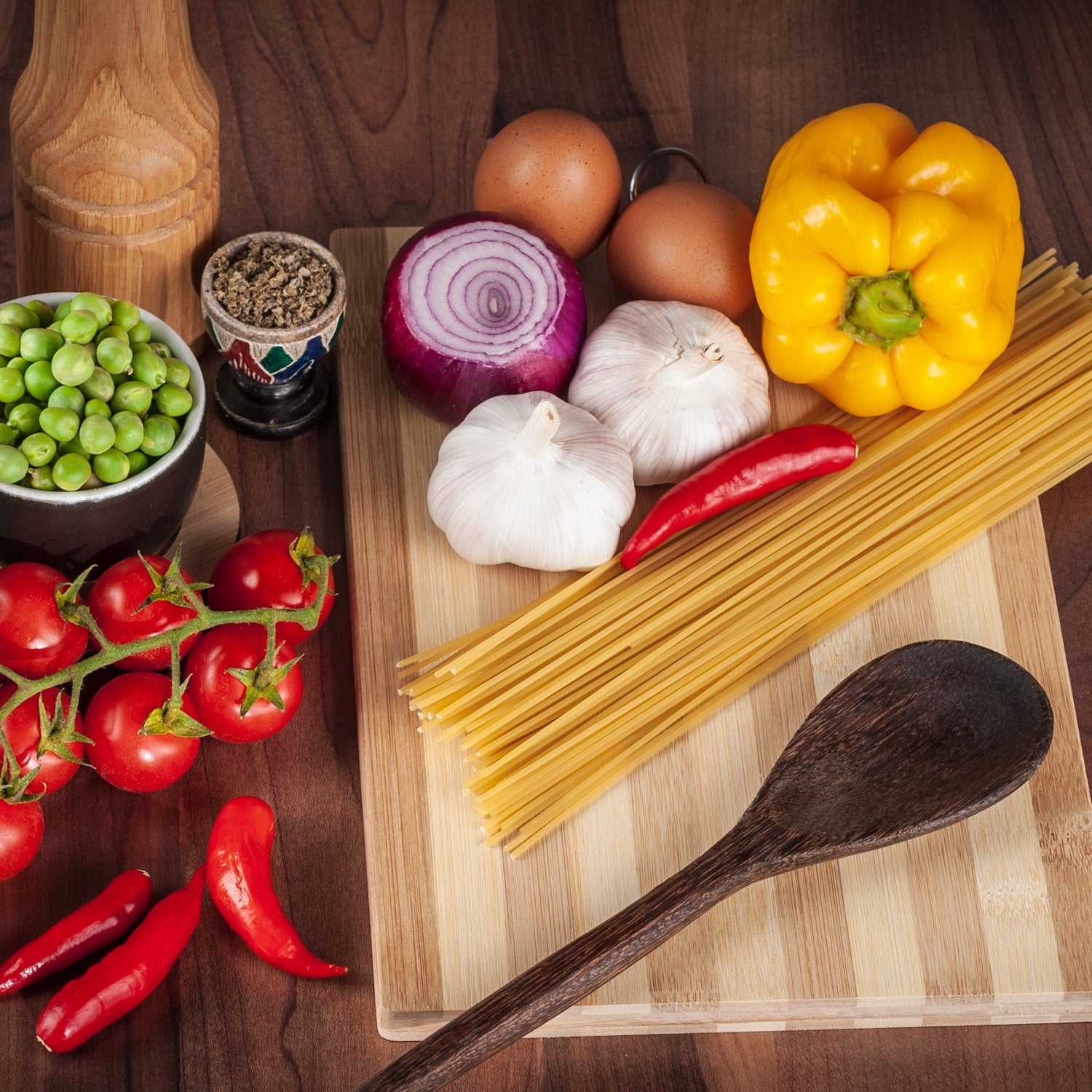
What Are Heavily Processed Foods? The Hidden Dangers You Need to Know
Do you find it difficult to navigate through the overwhelming amount of information on what constitutes healthy eating? Are you tired of the conflicting messages around processed and heavily processed foods?
You're not alone.
Today, nearly 58% of calories consumed in the US and 56% of those consumed in the UK come from heavily processed foods, which are associated with higher risks of obesity, diabetes, and cardiovascular diseases. However, making sense of the different types of ways to process food and understanding their effects on our health is critical to making informed dietary decisions.
In this blog post, we'll guide you through the NOVA Food Classification System that categorizes foods according to their degree of processing. We'll explore the four food groups in the system, including unprocessed and minimally processed foods, processed culinary ingredients, processed foods, and heavily processed foods referred to as ultra-processed foods. By the end of this post, you'll have a better understanding of how to choose and prioritize healthy food options to kickstart your health.
The NOVA Food Classification System is a tool designed by the Center for Epidemiological Studies in Health and Nutrition to categorize foods based on the extent and purpose of their processing. The system groups foods into four categories, each representing a different level of processing. The first category, unprocessed and minimally processed foods, includes whole foods that have undergone little or no processing, such as fresh fruits, vegetables, and legumes. The second category, processed culinary ingredients, includes substances used in cooking, such as oils, herbs, and spices. The third category, processed foods, includes foods that have undergone some form of processing, such as canned fruits and vegetables, bread, and cheese. Finally, the fourth category, ultra-processed foods, includes foods that are highly processed, such as packaged snacks, soda, and fast food. Understanding the NOVA Food Classification System can help individuals make better dietary decisions and prioritize the consumption of whole, unprocessed, and minimally processed foods.
Category 1: Unprocessed and Minimally Processed Foods
Unprocessed and minimally processed foods are whole foods that have undergone little or no processing, which means that they retain their original nutritional value and are free from additives, preservatives, or artificial ingredients. Examples of unprocessed and minimally processed foods include fresh fruits and vegetables, whole grains, legumes, nuts, and seeds. These foods are rich in essential nutrients, such as fiber, vitamins, and minerals, and are associated with numerous health benefits, including reduced risk of chronic diseases, such as diabetes, heart disease, and cancer. Consuming whole foods has also been linked to improved digestion, increased energy, and better weight management. By adding more unprocessed and minimally processed foods into our diet, we can fuel our bodies with the nutrients they need to function at their best.
Category 2: Processed Culinary Ingredients
Processed culinary ingredients are substances used in cooking that have undergone some form of processing, such as refining or pressing, but have not been significantly altered from their original state. Examples of processed culinary ingredients include oils, such as olive, coconut, and avocado oil, vinegars, herbs, and spices. These ingredients can be used to add flavor, texture, and aroma to dishes and are a great way to include variety and interest in your diet. Processed culinary ingredients are also generally considered to be healthy additions to meals, as they are a source of healthy fats and antioxidants. To incorporate processed culinary ingredients into your diet, consider using them in salad dressings, marinades, or as a finishing touch to cooked dishes. Be mindful of portion sizes and opt for high-quality, minimally processed options for the best nutritional benefits.
Category 3: Processed Foods
Processed foods are foods that have undergone processing to extend their shelf life, enhance their flavor, or improve their texture. Processing can include adding salt, sugar, or fat, and may involve the use of chemical additives or preservatives. Examples of processed foods include canned foods, packaged snacks, and frozen meals. While processed foods are convenient and can be a time-saver, they often lack essential nutrients, such as fiber, vitamins, and minerals, and may be high in calories, sodium, and added sugars. Regular consumption of processed foods has been linked to an increased risk of chronic diseases, including obesity, diabetes, and heart disease. To reduce the negative impact of processed foods on your health, it's recommended to limit your intake of processed foods and choose fresh, whole foods as much as possible.
Category 4: Ultra - Processed Foods
Ultra-processed foods are food products that undergo multiple processing stages, typically involving the addition of artificial flavors, colors, preservatives, and other chemical additives. These foods are often high in calories, salt, sugar, and unhealthy fats, while low in fiber, vitamins, and minerals. Examples of ultra-processed foods include sugary drinks, snack foods, frozen meals, and fast food.
Studies have linked ultra-processed foods to several health risks, including obesity, type 2 diabetes, high blood pressure, and heart disease. These foods are often easy to overeat due to their high palatability, low satiety, and addictive properties, leading to weight gain and other health problems over time. In addition, the chemical additives and preservatives in ultra-processed foods have been associated with inflammation, oxidative stress, and other cellular damage in the body.
As such, it's important to limit or avoid ultra-processed foods in one's diet and opt for whole, minimally processed foods instead. This includes fresh fruits and vegetables, whole grains, lean proteins, and healthy fats. Reading food labels and choosing products with simple, recognizable ingredients can also help reduce the intake of ultra-processed foods. Making small changes in one's diet and gradually transitioning to a more whole foods-based approach can have significant health benefits and improve overall health.
Eating a healthy, balanced diet is the cornerstone to good health. To make healthy choices when it comes to food, it's recommended to prioritize unprocessed and minimally processed foods. These foods are loaded with essential nutrients and are not altered following their removal from nature. When shopping for groceries, it's important to read food labels carefully to understand what ingredients are in the food you're buying. Be wary but not fearful of processed foods, as some can be healthy additions to meals when consumed in moderation. Yet, it's recommended to limit or avoid ultra-processed foods, as they are often high in calories, unhealthy fats, and added sugars. By following these tips and aiming for mostly whole foods and freshly made meals, you'll be doing your body a favor and on the path to peak health and longevity.
In summary, the NOVA Food Classification System is a helpful tool for understanding the different levels of processing that foods undergo. By grouping foods into four categories, it allows individuals to make informed choices about what they eat. Unprocessed and minimally processed foods should be prioritized as they are loaded with essential nutrients and provide numerous health benefits. Processed culinary ingredients can contribute to healthy and delicious meals, while processed foods should be consumed in moderation. Ultra-processed foods should be limited due to their potential negative impact on health. Ultimately, making healthy food choices is critical for great health. By integrating whole foods into your diet and limiting processed and ultra-processed foods, you can help to ensure that you are providing your body with the nutrients it needs to function at its best.
Ready to act? Buy our Recipe Bundle today and kickstart your health.



